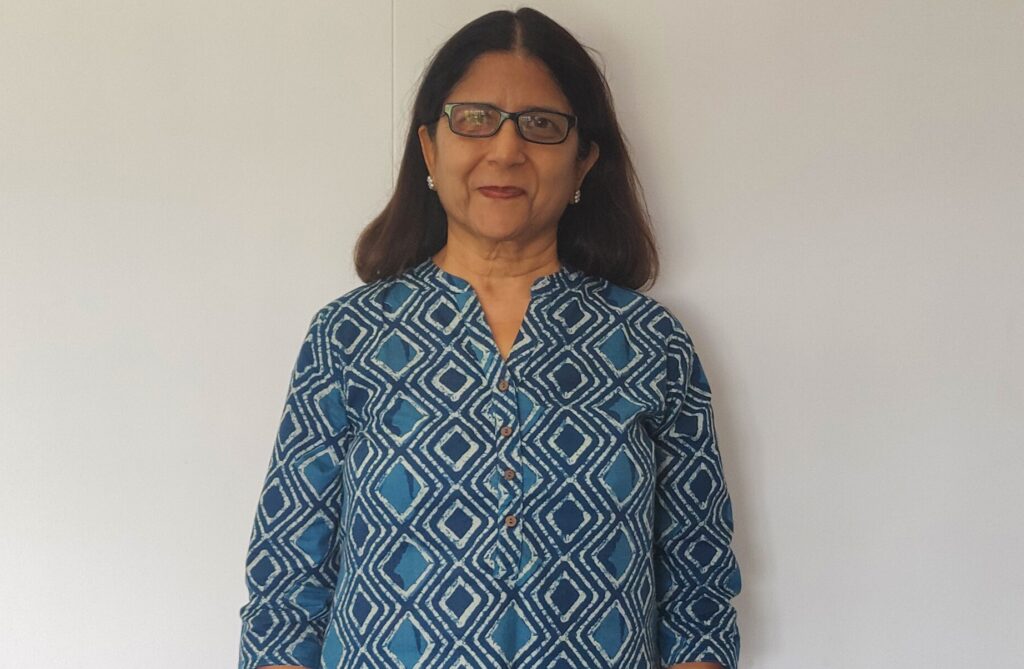Ahmedabad, April 21 (IANS) Epidemiologist Kaumudi Joshipura, who has been appointed the Dean of the newly opened Ahmedabad University’s School of Public Health, has said that she always tries to make an impact on the global level to make the world a better place.
During an interaction with IANS, Joshipura, who is a Doctor of Science in Epidemiology from Harvard University and boasts of a successful career as the NIH Endowed Chair & Director of the Center for Clinical Research and Health Promotion at the University of Puerto Rico, said that she always had a passion for creating a positive impact in the society.
Ahmedabad University opened the School of Public Health on April 18. The varsity in a statement said the institute has been set up with a mission to improve the health and the environment locally, nationally, and globally.
“The goals of the School are to train leaders who can develop wholistic solutions to interdisciplinary problems pertinent to the 21st century, and to educate and inspire individuals, communities, and organisations,” the varsity note read.
When this correspondent met Joshipura at Ahmedabad University on Friday, she shared her journey to becoming an epidemiologist, and her vision for public health research at the varsity.
“I always had a very global mindset. I was stationed at Harvard for over 16 years. The most important thing is not how you do it but what you do. ‘What’ and ‘Why’ — these are the questions I ask myself before I start a project. I always wanted to make an impact and make the world a better place. And then, this opportunity came my way,” she told IANS.
The School of Public Health Dean also holds Susmita and Subroto Bagchi Professorship in Public Health endowed by Susmita Bagchi, Odia writer and Chairperson, MoSchool, and Subroto Bagchi, Co-Founder of Mindtree, and Chairman, Odisha Skill Development Authority.
Being a Gujarati, she spoke about the challenges the state of Gujarat faces due to its geography and diet, while emphasising the need to create awareness about these issues.
She said: “I am a Gujarati and so I know the pros and cons of a Gujarati lifestyle. In terms of geography, it’s prone to drought, floods, earthquakes and dry heat. We can see its immediate effects but we still need to research the long-term impacts of living in this climate.
“In terms of lifestyle, ours is the only state where we put sugar in almost everything we cook, a lot of fried stuff, refined carbs diet. I was surprised to see that although alcohol is banned in Gujarat, a lot of people get addicted to alcohol more than in other states,” she added.
She explained that it was the university’s focus on solving society’s problems that drew her in.
She believes that the university’s interdisciplinary approach to research makes it an ideal place to achieve her goals.
“It was not like I wanted to move to India and that’s why I took up this opportunity. I made this transition because the university fascinated me and the opportunity to be a founding dean of a new school is rare. This aligned with my thinking well,” she told IANS.
“The focus on solving society’s problems. Many universities want to be interdisciplinary, but the size and location of it make it impractical to happen. It is not the case here. Public health is interdisciplinary and this university makes it possible for different fields to collaborate. Here, you have the opportunity to leave a legacy,” she added.
Joshipura also highlighted the importance of using tools such as data science, machine learning, and artificial intelligence to study climate change and its impact on public health.
During her inaugural presentation, Joshipura highlighted the fact that the participation of the private sector in public health is still lukewarm.
Elaborating on this, she told IANS: “The needs are huge but the demands aren’t met as the awareness is not there. If we create awareness in a proper way, then people will understand the needs. Climate change is not something that the United Nations, or the Prime Minister will take care of. Each of us needs to chip in. Earlier, people just thought public health was only for the poor people.”
On making a difference in mindset, she uses the analogy of fashion.
“Someone starts wearing something new and eventually people follow. So you have to make the new thing cool and fashionable. For example, wearing hats in the sun-so that people do not suffer from heatstroke.
“The biggest challenge is to prioritise as there is so much to be done!” she signed off.
-JANVI SONAIYA, IANS

